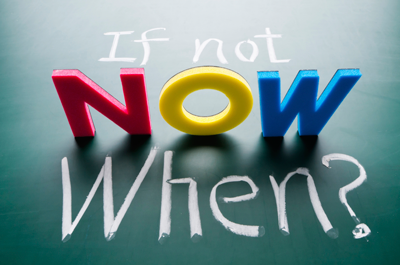Change is essentially about moving from where you are now to a new destination and in this respect it can be likened to a journey that you do not usually take. Therefore It has many of the same fears associated with it. This is primarily because it will take you to unfamiliar territories and in doing so away from your zone of familiarity.
There are ways to plan for greater success in your journeys though and here are 6 steps to help you create and achieve real change.

1: Do you want to and are you willing? If you are reading this, then it would probably suggest that you are looking to change something and this is the first and probably most important step. Because without the desire and willingness to change, there is very little chance of change happening. If you have gotten this far though, I think we can probably agree that you are looking for a desired change. So step one is complete.
2: Specify what to change and why: This may seem a very obvious step, but if you are unable to provide a convincing specific reason to even yourself, change is unlikely to occur. For instance if you decide you would like more money in your life, are you clear on what it is for? However, if you decide you would like more money because you would like to buy a new car, there is now more specificity. Once this is determined and Identified you now have specifics on what to focus on. This not only makes the following steps easier, it is a major contributing factor of a successful change. This is primarily because, to say we desire more money or that you would like to be happier, lacks a specific destination to move towards; both are more often than not a byproduct of something we do or don’t do and are more of an end goal than anything we can tangibly imagine or specifically visualise.

3: Make a Plan: if we look at this again like a journey to a new destination. One of the very first things we do is put the destination into a satnav and this generally lets us know how long it may take, which way to travel and where you will pass along the way. In the same way, when we make a new plan, one of the first steps you can take is to create a focus board. Generally a focus board is a picture and or short statement of what we would like to achieve. This as the name suggests is a way to maintain focus on the destination. If you do not regularly remind yourself of where you are heading, it will often take a lot longer to get there and sometimes you may even completely forget where you were heading. Do some research and collect some ideas on how you can move towards your desired destination. For example, if you wanted to learn a new language, look at what classes are in your area or what online lessons are available and decide which best suits you at the present time. Making a plan does not require having all the details worked out before you take the first step either. Every step you take is a step forward and your end goal will continue to get clearer with each step.
4: Consistency: As far as I know we haven’t yet created a teleportation device, so we still get from one place to another, one step at a time and this is the same for change. The basic premise of consistency is to follow one step with another and then another and so on because if you do not, how will you ever get to your destination? This is where we refer back to step 3, our planning stage and see what the next step will be, to get us closer to our goals. It is also important to remember that on each step of your plan to appreciate how far you have come and to observe your destination getting closer and becoming more in focus with each step. This serves many purposes including being a motivation to help you take the next step.
5: Be aware and Adapt: At the start of a journey the destination can often seem a little vague, but as you get closer and closer you begin to see more detail and this aids in choosing what the next step is. Often even on the simplest of journeys things can and almost certainly will not go quite according to plan and the ability to adapt at these times is highly advisable. The more aware you are the more likely you are to discover new things along the way. This is all part of why being aware and adapting as you go is an important part of change. Because the plans you are making for yourself and the goals you are setting to get there will almost certainly be unfamiliar to you, or else they would not be a change.
 6: Rest and reflect: It’s often when we look back on a journey that we realise just how far we have come and that we have so many amazing tales and stories to share, especially the bits we weren’t anticipating happening. This reflection happens when we give ourselves time to rest, breath and recuperate and this is an essential part of change and also for having a better idea of which direction to head in next. Because it is often only when we stop to rest and reflect that some of the most important observations can be made.
6: Rest and reflect: It’s often when we look back on a journey that we realise just how far we have come and that we have so many amazing tales and stories to share, especially the bits we weren’t anticipating happening. This reflection happens when we give ourselves time to rest, breath and recuperate and this is an essential part of change and also for having a better idea of which direction to head in next. Because it is often only when we stop to rest and reflect that some of the most important observations can be made.
Remember As with all things the first steps can be a little slower and more wobbly than the ones that follow, so please be kind and supportive of all your achievements no matter how small you think they are at the time. Also take the time to stop and congratulate yourself, because each of these steps have been your choice towards your goals and hopefully a happier version of you.



























